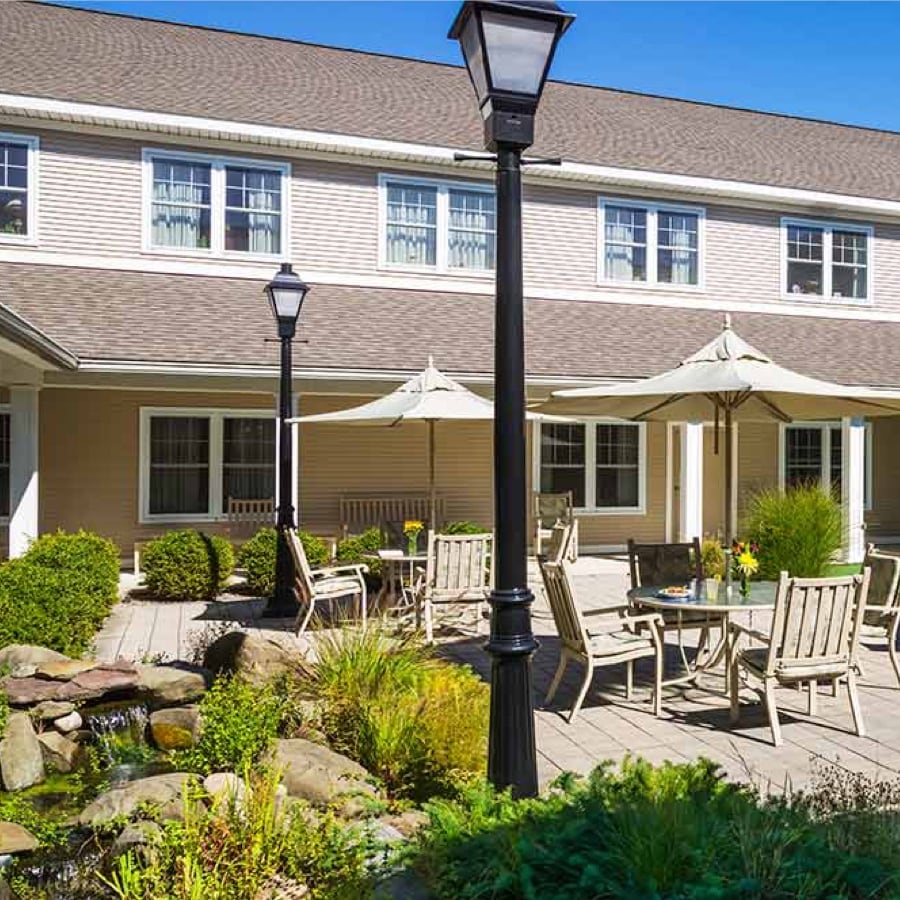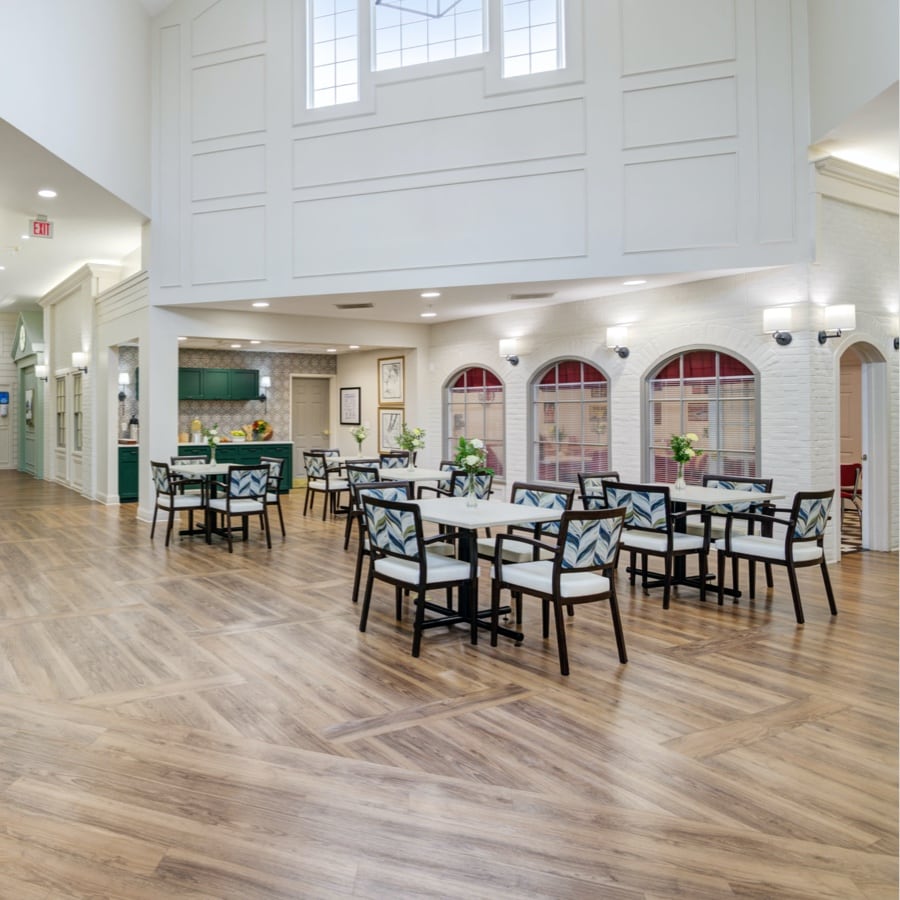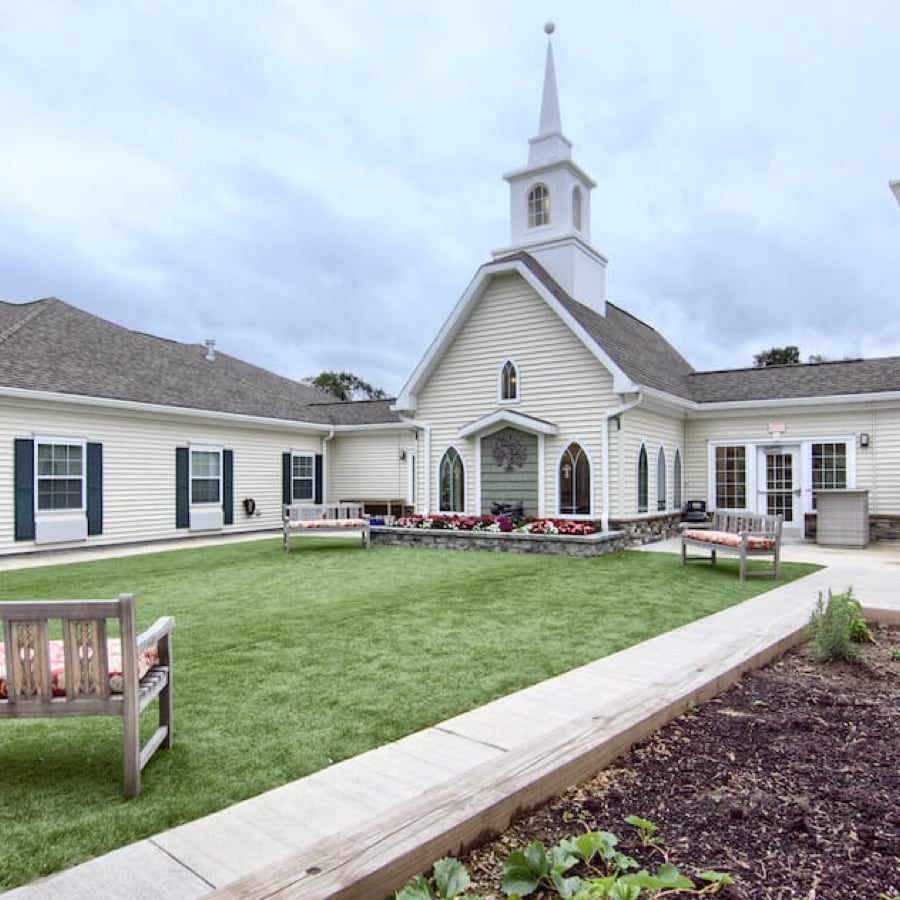Assisted living often can accommodate a person showing signs of mild dementia. Some senior living communities even offer the option of memory care. However, it’s important to understand that dementia and Alzheimer’s disease are progressive diseases and there are signs to watch for that can indicate it might be time for your loved one to make the move from assisted living to memory care.
Moving From Assisted Living to Memory Care: Signs It May Be Time.
- Wandering. If a person begins to show signs of elopement—such as packing a bag, informing staff they are ready to leave or looking for an exit—it may indicate that what began as mild dementia has progressed to the next stage. Transitioning from assisted living to memory care will offer the senior the comfort and reassurance of a secure, safe environment designed to discourage wandering and remove sources of frustration, such as dead-end hallways.
- Aggression. Increased confusion can lead to agitation, which can culminate in aggressive behavior which can be dangerous both for other residents as well as your loved one. Memory care staff is well-trained to deal with these symptoms by using effective strategies for redirecting emotions for a positive outcome. The result is a safer, better quality of life for your loved one and better peace of mind for you.
- Difficulty socializing. Assisted living is designed to offer the resident freedom to plan their day as they choose, taking advantage of the activities and amenities that appeal most to them. But when a person begins to isolate and pull away from friends or family or stop communicating with staff and caregivers, it can be a sign it’s time to move from assisted living to memory care. It may be because they no longer remember the things they should and being in a group may start to feel overwhelming. In memory care, with others around them sharing the same challenges, your loved one will likely feel more at ease.
- Change in eating habits. Dementia can affect a person’s ability to eat or drink, which can result in weakness, fatigue and dehydration. Sometimes the person forgets to eat. Sometimes they don’t realize they just ate and want another meal. A decreased sense of smell or taste can be another factor that results in a loss of appetite. Issues with food signal that it might be time to make the move from assisted living to memory care so that the person can enjoy a regular, structured mealtime with assistance from caregivers who know how to make the experience calm and comfortable.
- Getting lost. Assisted living affords residents the freedom to explore the entire senior living campus, as well as come and go from the community as they choose. If a person begins to have difficulties finding their way back to their residence, that is clearly a sign that should not be ignored. Even in the early stages of dementia, it’s common for a person to get lost or wander. The fact that’s a common incident does not lessen the inherent danger.
- Problems with scheduled activities. People with Alzheimer’s disease struggle with familiar tasks. It could be remembering the rules of a game or making a list. As the disease progresses, problems begin to include difficulty having a conversation or recognizing familiar faces. These are a few of the possible reasons why a person struggling with dementia might find it difficult to keep a schedule. In assisted living, there’s usually an activity calendar filled with regular events and programs that residents are encouraged to attend. When that stops happening, it can be a sign that moving from assisted living to memory care is a good idea, where caregivers can personally guide an individual through experiences that are meaningful to them.
Moving from assisted living to memory care can be a source of relief.
When a person is struggling with changes in their cognition, being able to live in a memory care setting designed specifically for their needs can be comforting and calming:
- Higher staff to resident ratio means more personalized care
- Caregivers are specially trained to respond to both verbal and visual cues and build a sense of trust and friendship
- Safety design features such as color-coded walls and flowing floor plans reduce wandering
- Calm, comfortable mealtimes ensure that each person is receiving proper nutrition
- Activities can become a source of pleasure when a person is no longer anxious about being able to participate successfully
Transitioning to memory care can mean more successes, and greater peace of mind for you and your family. At Peregrine, we’re redefining dementia and Alzheimer’s care to make sure that you can hold onto what makes your loved one unique for as long as possible. The Peregrine Way™® is our unique approach to memory care that helps improve the quality of life for residents and their families through unsurpassed care.
Discover the possibilities that open up when we don’t let our loved ones be defined by Alzheimer’s disease or other dementias. Contact us today to learn more. And please download the free guide, Just The Facts: Guide to Assisted Living. We are here to help you!











